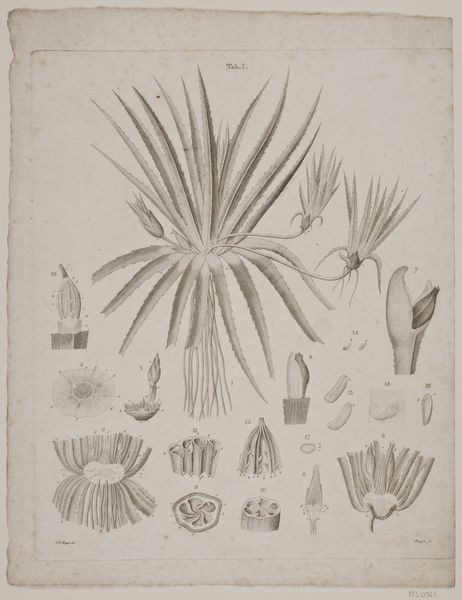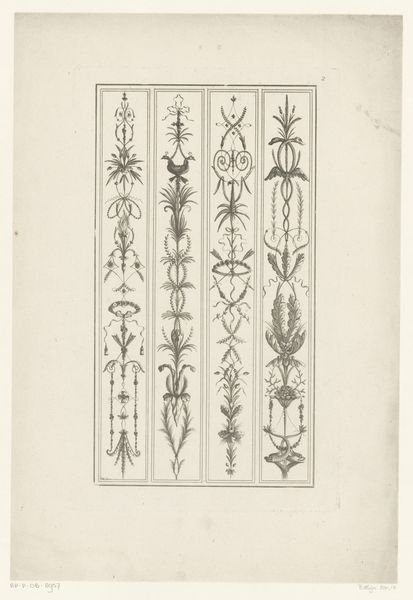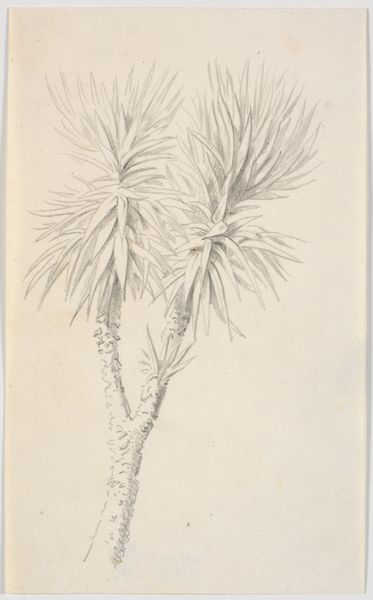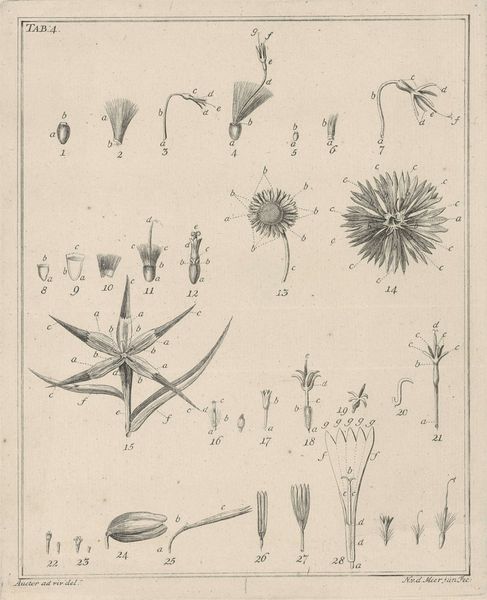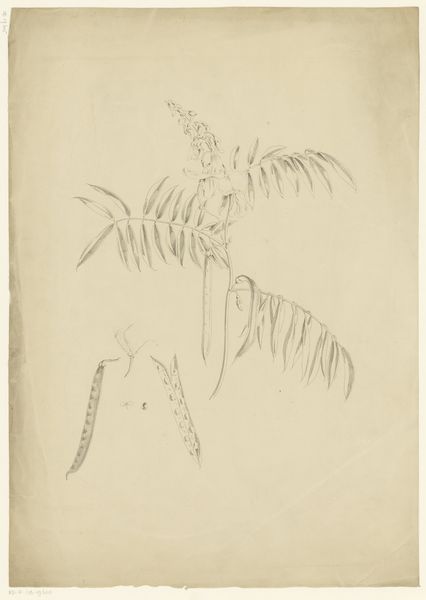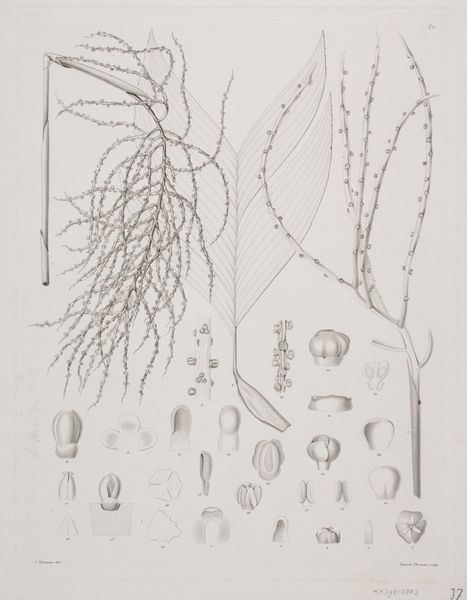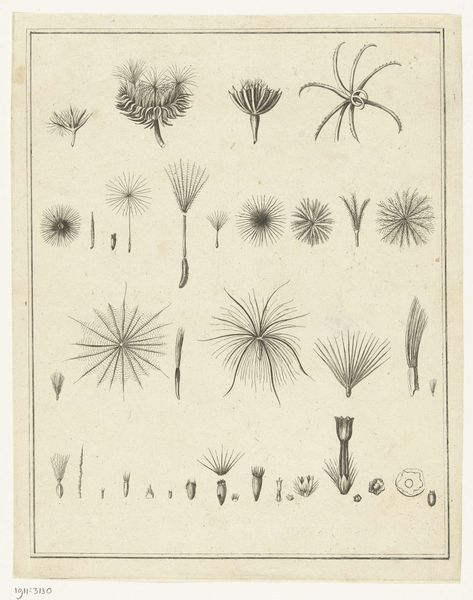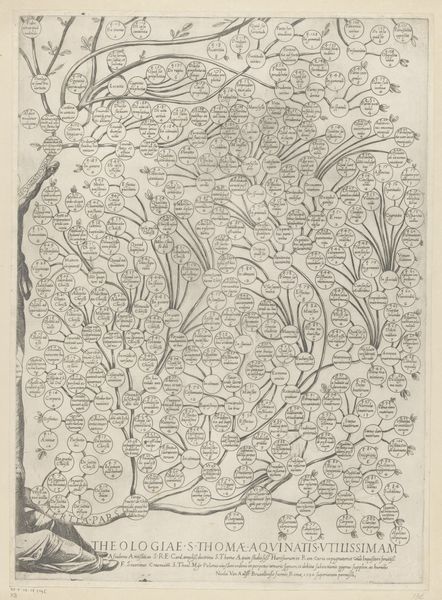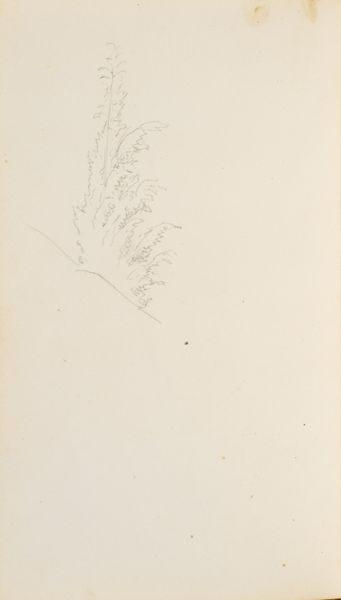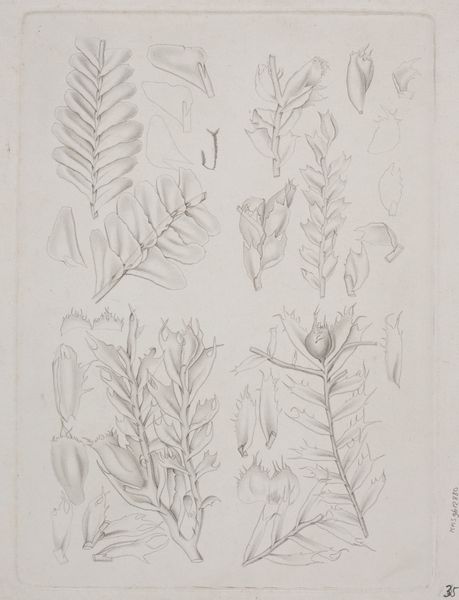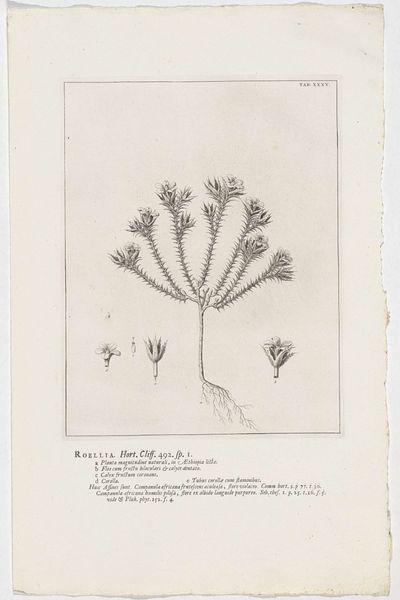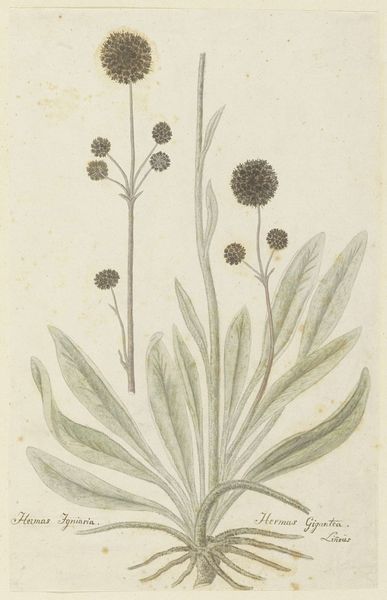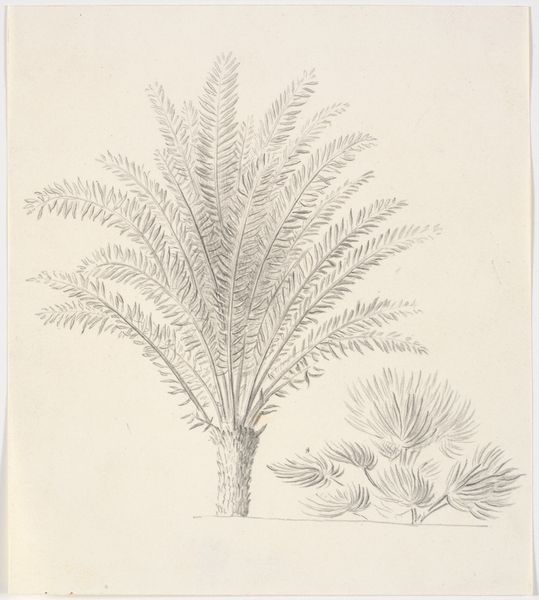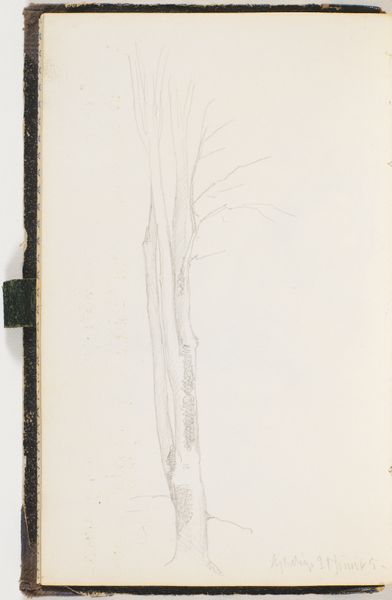
drawing, print, etching, ink
#
drawing
#
light pencil work
#
ink drawing
#
thin stroke sketch
# print
#
pen sketch
#
etching
#
pencil sketch
#
incomplete sketchy
#
ink
#
linocut print
#
ink drawing experimentation
#
pen-ink sketch
#
thin linework
#
academic-art
#
realism
Dimensions: 346 mm (height) x 267 mm (width) (plademaal)
Augusta Thornam made this botanical etching sometime in the 19th century. It’s an exquisite piece of natural observation, carefully depicting the structure of a Sweetgum plant. But we can also consider its position in a specific cultural and institutional setting. In 19th-century Europe, botany was a science closely linked with empire, as European powers sought to understand and exploit the natural resources of their colonies. Botanical illustration, like this one, was crucial for documenting and classifying plant species. In Denmark, the Botanical Garden in Copenhagen was closely linked to the university and played a key role in botanical research. An artist like Thornam, working in this milieu, would have been keenly aware of the scientific and economic implications of her work. We can only speculate as to the precise use of this botanical study, but her image is an interesting example of the way that art, science, and economic interests intersected in 19th-century Europe.
Comments
No comments
Be the first to comment and join the conversation on the ultimate creative platform.
